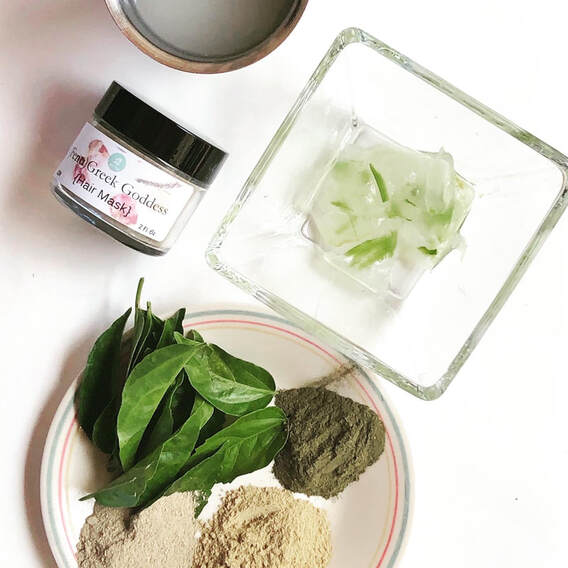|
What are your hair woes? Mine is a smelly scalp. I tend to sweat a bit on my head when I go for walks or exercise. So my personal nightmare is repulsing someone with scalp odor. Of course I could wash my hair several times a week to avoid this. But when you shampoo too often, you're cleaning the dirt at the expense of stripping your scalp of sebum, the natural oils that protect it from overly drying and keeps hair healthy. Read this article for a description of how shampoo works.
My hair care routine is as follows:
Oiling the scalp increases blood circulation to it and is important for healthy hair. A good hair mask must provide nourishing ingredients without stripping the scalp of the oils. You can customize hair masks for different purposes example, dandruff, hair fall etc. Some stellar ingredients suggested by Ayurveda are aloe vera gel (fresh from the plant), brahmi and bhringraj for hair fall, neem for dandruff, hibiscus for conditioning etc. Shikakai and aritha powders gently cleanse and restore pH balance to the scalp. A note on conditioning: modern day conditioners are made of oils, waxes and silicones. While they can make your hair shine and are great for detangling, the waxes just draw more dirt and if you put the product on your scalp, can block the pores and interfere with sebum production. Unfortunately, most commercial shampoos are so harsh that shampooing without conditioning is almost impossible. This is why it is important to pick a gentle, naturally conditioning shampoo. Saroya's Coconut Eucalyptus powder shampoo has conditioning coconut milk and is gentle enough that you don't need conditioner. For modern day bathing in showers, shampoos work best to remove the oil. This is what I advise my clients to do to achieve healthy hair that doesn't smell bad if you go a few days without washing.
If you'd like to know more about the Ayurvedic perspective of hair, I recommend this article. Do you have a hair care routine? Comment below!
3 Comments
|
|
|
© Saroya Natural 2023 | All rights reserved.
Website designed by Aadi M |
Contact Us |


 RSS Feed
RSS Feed